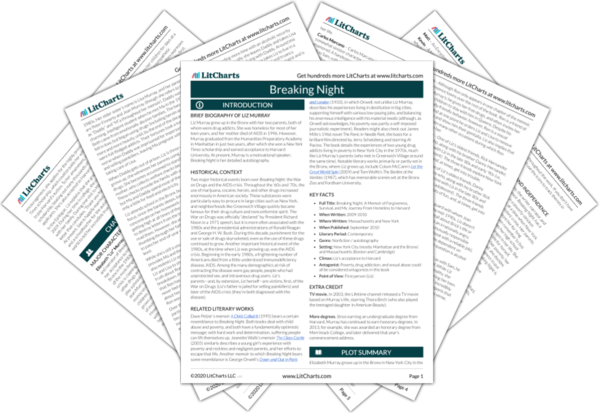Liz desperately wants to believe that her mother will get clean, especially since, on the surface, this should be as simple as no longer bringing drugs home. But Liz has seen Ma try and fail to “get clean” too many times to be one hundred percent convinced. Liz knows that Daddy will continue using drugs around Ma. This would mean that, as Ma herself suggests, Ma will continue using drugs, too. By the same token, Ma’s claim that she’ll give Daddy a chance to get clean suggests that she’s not all
that serious about getting clean herself—instead, she’s passing on that responsibility to her partner. That’s what’s so heartbreaking about this section: Liz wants Ma to stop using drugs, but even as a child she seems to intuit how unlikely this is.
